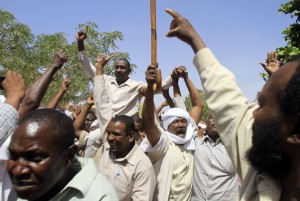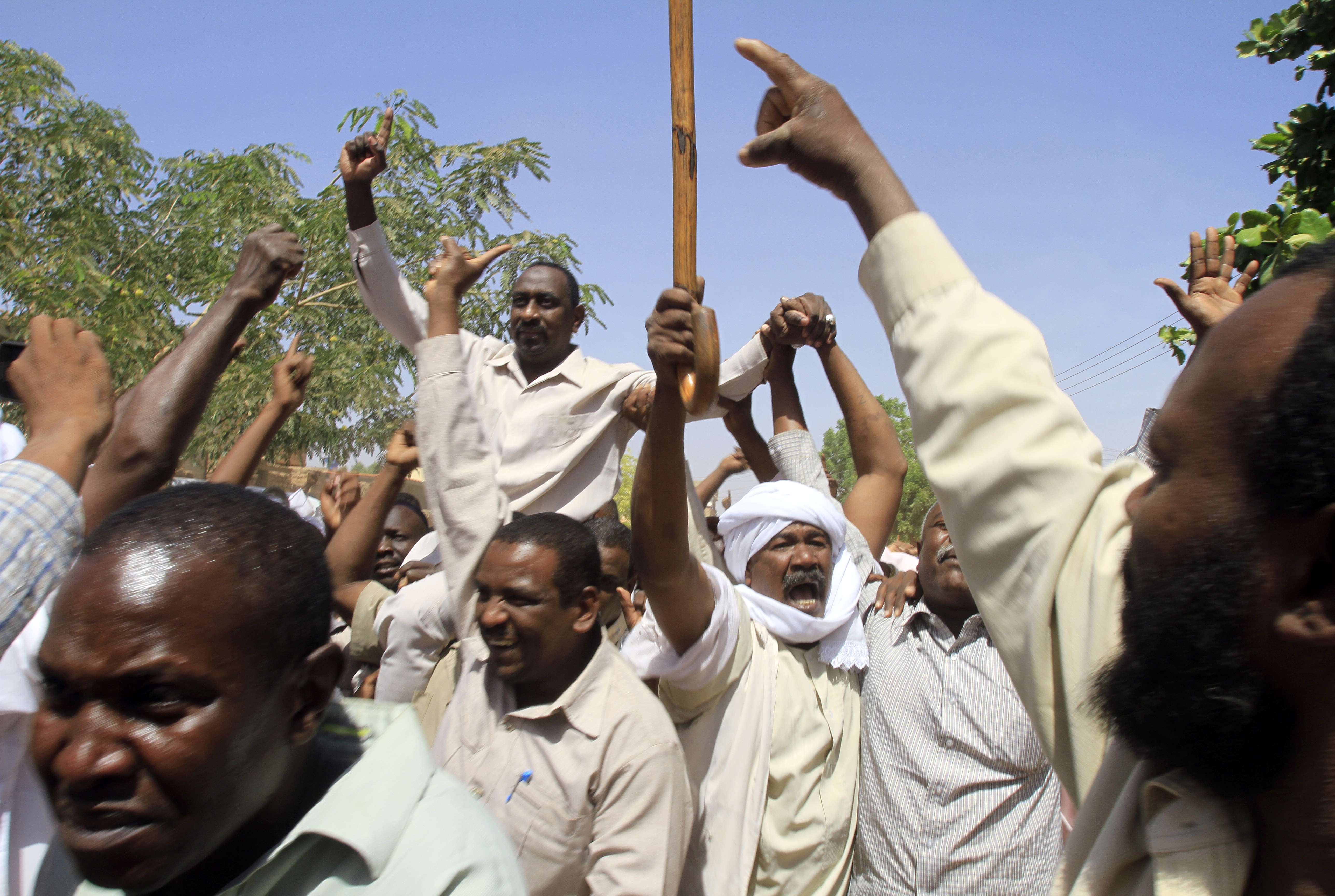
(AFP Photo)
(AFP) – Seven Sudanese military officers convicted and jailed over a coup attempt walked free on Wednesday under a presidential amnesty, just days after they were sentenced.
The seven converged on the home of their freed leader, Brigadier Mohammed Ibrahim, who had received the heaviest sentence of five years in prison.
Wearing civilian clothes and shouting “Allahu akbar” (God is greatest), Ibrahim and the others were greeted by hundreds of supporters, relatives and neighbours as celebratory gunfire sounded.
Army spokesman Sawarmi Khaled Saad said the men received an amnesty from President Omar al-Bashir but will be banned from military service.
The officers could potentially have been executed for the case which analysts say reflects a political struggle within the 24-year regime of Bashir, who himself took power in a coup.
A military court on April 7 issued prison sentences ranging from two to five years and dismissed the soldiers from the army.
Two days later they asked Bashir to pardon them as “political prisoners” under the amnesty he announced early this month.
“Now we are free and the case is finished for us,” Ibrahim said in brief comments after revellers slaughtered four sheep and hoisted the smiling officers on their shoulders.
The army originally said 11 men were convicted but one of the defence lawyers gave the total as nine. Two colonels had already been released in recent days, a regional political expert said.
Officials gave only vague details about the November plot which analysts said was linked to hardcore Islamist officers who had once firmly backed the regime.
Ibrahim played a role in the 1989 coup that brought to power Bashir’s government, which describes itself as Islamist.
“I thank Sudanese people and SAF (Sudan Armed Forces)… We are seeking reform and we hope the country will reform and the people of the country will be united,” the freed officer said.
Magdi El Gizouli, a fellow at the Rift Valley Institute, had expected a pardon for at least some of the soldiers, whose goal he said is to replace Defence Minister Abdelrahim Mohammed Hussein and assume other key security roles.
“This is about some sort of (political) exchange, rather than a court procedure,” Gizouli said earlier.
Most of the detainees are close to a vocal group of veterans of the 1983-2005 civil war with the now-independent South, and an elite group of volunteer mujahedeen fighters among them called Al-Saihun or “tourists for the sake of God”.
Along with a youth movement within the ruling National Congress Party, the war veterans have called for new national leadership and a return to Islamic values because they said the government is tainted by corruption.
“I think President Bashir is scared, he’s very scared of a bad relationship with Saihun,” which could threaten another coup, said the regional political expert who asked for anonymity.
“He knows very well he is threatened by many divisions,” and is seeking to unify them.
Analysts noted the soldiers’ release comes after the government said it is willing to talk with rebels fighting in South Kordofan and Blue Nile states.
The freed officers “are deeply opposed” to those rebels, said Cedric Barnes, Horn of Africa project director for the International Crisis Group of analysts.
The plotters were detained without any shots being fired.
Authorities also arrested Salah Gosh, national intelligence chief until 2009. His case has not yet been dealt with.
Sudan has been through at least seven coups or attempted coups in its 57 years of independence.
There has been some easing of tension since early March when Sudan and SouthSudan began to normalise relations after months of intermittent border clashes.
Bashir then announced he would free all political prisoners as the government seeks a broad political dialogue, “including (with) those who are armed”.


